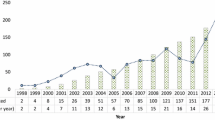Abstract
As a typical situational application, Web mashup reflects and accommodates some key features of Internetware paradigm. Mashup provides a development fashion that integrates data, computation and UI elements from multiple resources into a single Web application, and promises the quick rollout of creating potential new functionalities opportunistically. This paper focuses on the problem of recommending useful suggestions for developing data-driven mashups by synthesis of multiple patterns. We present a rapid and intuitive system called iMashupAdvisor, for aiding mashup development based on a novel automated suggestion mechanism. The key observation guiding the development of iMashupAdvisor is that mashups developed by different users might share some common patterns, for instance, selecting similar mashup components for similar goals, and gluing them in a similar manner. Such patterns could reside in multiple sources, e.g., the data dependency between mashup components, the interaction between users and mashup components, or the collective intelligence from existing applications created and maintained by programmers, etc. iMashupAdvisor leverages the synthesis of these patterns to recommend useful suggestions for a partial mashup, such as the missing components, connections between them, or potentially relevant options, to assist mashup completion. This paper presents the data model and ranking metrics of the synthesis process, and introduces efficient algorithms for the retrieval of recommendations. We also experimentally demonstrate the efficiency of our approach for benefiting the proposed rapid mashup development.
Similar content being viewed by others
References
Yang F Q, Lu J, Mei H. Technical framework for internetware: an architecture centric approach. Sci China Ser F-Inf Sci, 2008, 51: 610–622
Mei H, Huang G, Xie T. Internetware: a software paradigm for internet computing. IEEE Comput, 2012, 45: 26–31
Lu J, Ma X X, Tao X P, et al. Research and progress on Internetware (in Chinese). Sci China Ser E-Tech Sci, 2006, 36: 1037–1080
Jazayeri M. Some trends in Web application development. In: Proceedings of Future of Software Engineering, Minneapolis, 2007. 199–213
Balasubramaniam S, Lewis G, Simanta S, et al. Situated software: concepts, motivation, technology, and the future. IEEE Softw, 2008, 25: 50–56
Liu X Z, Huang G, Zhao Q, et al. iMashup: a mashup-based framework for service composition. Sci China Inf Sci, 2013, 56, doi: 10.1007/s11432-013-4782-0
Hoyer V, Fischer M. Market overview of enterprise mashup tools. In: Proceedings of 6th International Conference on Services Oriented Computing. Berilin/Heidelberg: Springer-Verlag, 2008. 708–721
Liu X Z, Zhao Q, Huang G, et al. imashup: assisting end-user programming for the service-oriented Web. In: Proceedings of 25th IEEE/ACM International Conference on Automated Software Engineering, Antwerp, 2010. 285–288
Greenshpan O, Milo T, Polyzotis N. Auto-completion for mashups. In: Proceedings of 35th International Conference on Very Large Data Base, Lyon, 2009. 538–549
Blake M B, Nowlan M F. Knowledge discovery in services (KDS): aggregating software services to discover enterprise mashups. IEEE Trans Knowl Data Eng, 2011 23: 889–901
Liu X Z, Huang G, Mei H. Discovering homogeneous Web services community in the user-centric Web environment. IEEE Trans Serv Comput, 2009, 2: 167–181
Chowdhury S R. Assisting end-user development in browser-based mashup tools. In: Proceedings of 34th International Conference on Software Engineering, Zurich, 2012. 1625–1627
Chowdhury S R, Daniel F, Casati F. Efficient, interactive recommendation of mashup composition knowledge. In: Proceedings of 9th International Conference on Service Oriented Computing, Paphos, 2011. 374–388
Wong J, Hong J I. Making mashups with marmite: towards end-user programming for the Web. In: Proceedings of the SIGCHI Conference on Human Factors in Computing Systems. New York: ACM, 2007. 1435–1444
Bouillet E, Feblowitz M, Liu Z, et al. A tag-based approach for the design and composition of information processing applications. ACM SIGPLAN Notices, 2008, 43: 585–602
Stolee K T, Elbaum S G. Refactoring pipe-like mashups for end-user programmers. In: Proceedings of the 33rd International Conference on Software Engineering. New York: ACM, 2011. 81–90
Author information
Authors and Affiliations
Corresponding author
Rights and permissions
About this article
Cite this article
Ma, Y., Lu, X., Liu, X. et al. Data-driven synthesis of multiple recommendation patterns to create situational Web mashups. Sci. China Inf. Sci. 56, 1–16 (2013). https://doi.org/10.1007/s11432-013-4908-4
Received:
Accepted:
Published:
Issue Date:
DOI: https://doi.org/10.1007/s11432-013-4908-4




